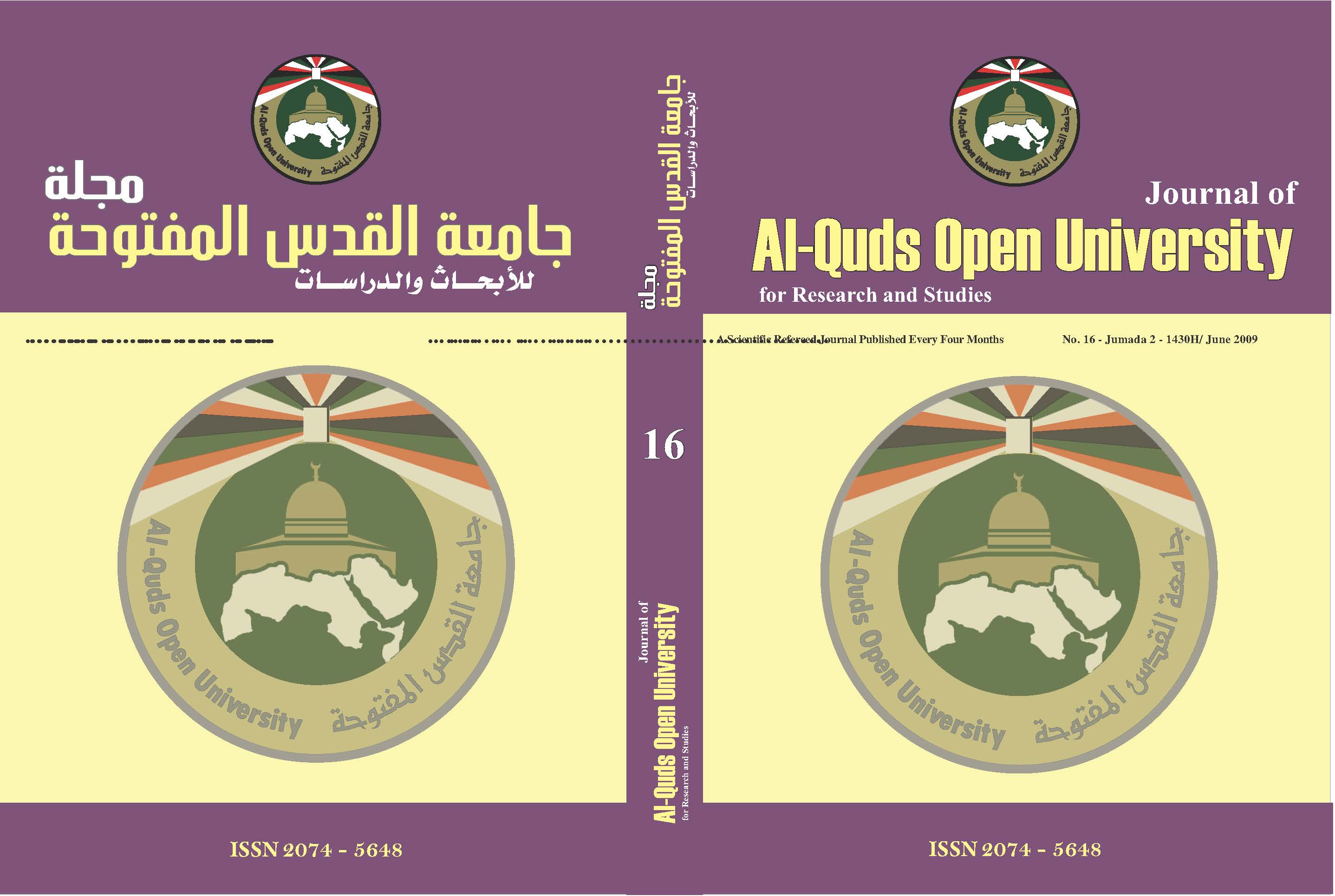The Role of University Education in Preparing Students for Contemporary Life from the Perspective of Students at Al-Quds Open University Branch in Jericho
Keywords:
University Education, Preparing Students, Contemporary Life, at Al-Quds Open University, JerichoAbstract
This study aimed to determine the role of higher education in preparing student for contemporary life viewed by scholars at Al-Quds Open University-Jericho Educational Region, and it answered the following main question:
What is the role of university education in preparing students for contemporary life viewed by scholars at Al-Quds Open University/Jericho Educational Region? The study also examined the following null hypothesis:
There were no significant statistical differences at the statistical level(α=0.05)in the averages of students responses of the role of higher education in preparing students for contemporary life due to: gender, specialization, academic level and life variables.
The researcher used the descriptive survey method for the purposes of the study.
The population of the study consisted of all student at Al-Quds Open University /Jericho Educational Region:(847) male and female student during October of the academic year 2007/2008, distributed in seven disciplines, as shown by statistics of admission, registration and examination department in the educational region. The questionnaire was applied to the total sample of(700) students who were being able to be reached by the researcher from all disciplines at the university.
The achieve of the objectives of the study, the researcher used the questionnaire which he developed himself and consisted of(64) items finalized and were distributed in(7) disciplines, after ascertaining validity arbitration and over all reliability by computing Chronbah Alpha which it’s total was(0.90).
To answer the first question, the researcher used the following statistical analysis: arithmetical average, standard deviation, percentage of each item and the total degree of the all admission. He also used(one way analysis of variances) and(L.S.D) dimensional comparisons, and(T-Test)
for independent group to test the study hypotheses.
The study concluded the following findings:
All seven dimensions of the study received the degree of consent(large) 1. with total average of 3.015 and more than(70%) of percentage.
Psychological dimensions received most of scholars’ interest from 2. among the seven disciplines.
Economic and productive dimensions received least attention of scholars 3. from among the seven disciplines.
(8) items from among(64) items received the degree of consent(very 4. large) more than(80%).
(46) items received the degree of approval(large) more than(70%).5.
(10) items received the degree of consent(medium) more than(60%).6.
None of the items received the degree of consent(lower than medium)7. (60%) or below.
There were no significant statistical differences at the level(α= 8. 0.05) between males and females, were the level of statistical significant(0.448).
There were significant statistical differences at the level(α= 0.05) 9. between the average of the view point of students because of their different academic specialization, and the differences were in favor of: Primary Education, Islamic Education and Arabic Language.
There were significant statistical differences at the level(α= 0.05) 10. between the average of the view point of students because of their different academic levels in favor of the first level and second level.
Here were no significant statistical differences between the average of 11. the view point of students according to age variable.
The study concluded a set of recommendations based on its findings.
Downloads
Published
How to Cite
Issue
Section
License
- The editorial board confirms its commitment to the intellectual property rights
- Researchers also have to commit to the intellectual property rights.
- The research copyrights and publication are owned by the Journal once the researcher is notified about the approval of the paper. The scientific materials published or approved for publishing in the Journal should not be republished unless a written acknowledgment is obtained by the Deanship of Scientific Research.
- Research papers should not be published or republished unless a written acknowledgement is obtained from the Deanship of Scientific Research.
- The researcher has the right to accredit the research to himself, and to place his name on all the copies, editions and volumes published.
- The author has the right to request the accreditation of the published papers to himself.













_2.png)
_.png)
_2.png)
_1.png)
_.png)

